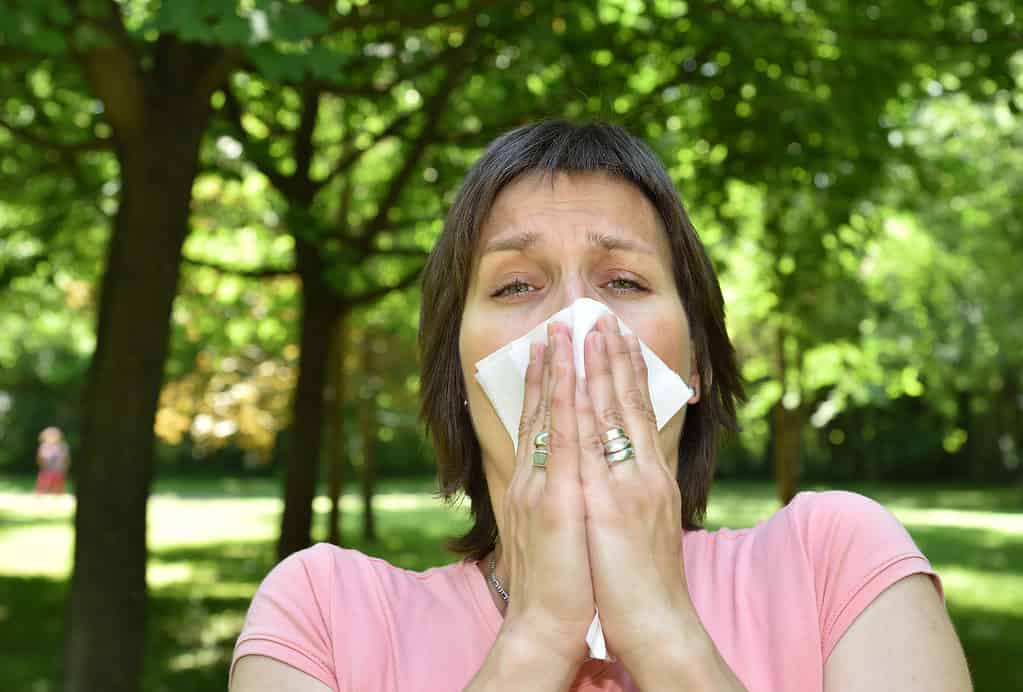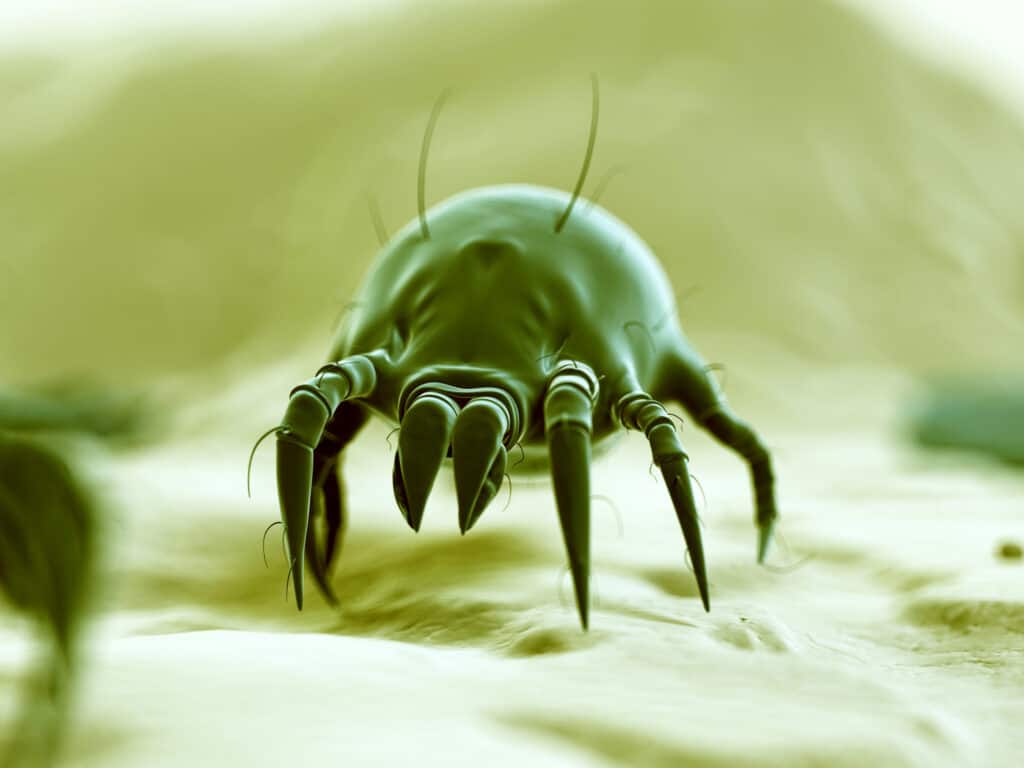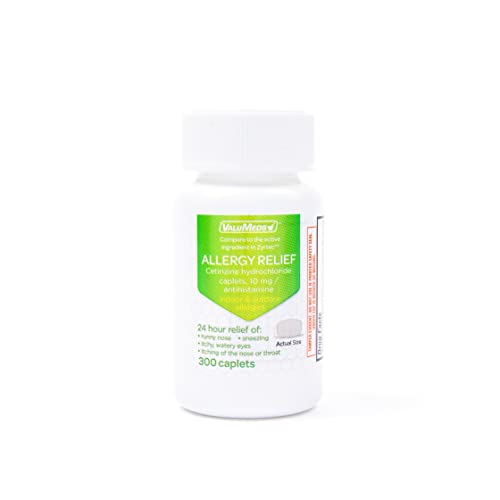Illinois, known for its diverse landscapes, from the Great Lakes to the prairies, is also home to a variety of allergens that can cause discomfort for residents during allergy season. From tree, grass, and weed pollen to mold and dust mites, the allergy season in Illinois can bring on a range of symptoms such as sneezing, runny nose, and itchy eyes.
In this article, we will take a closer look at the peak timing and symptoms of Illinois’ allergy season, as well as provide tips for managing and reducing the effects of allergens. You’d probably also like to know what allergens can affect pets and how to treat them. We got you covered. Read to the end of the article to figure out how to help your fur babies. Whether you’re a long-time resident or just visiting, understanding Illinois’ allergy season can help make enjoying the state more pleasant for you and your pets.

Allergy season occurs at the most beautiful time of year to be outdoors. Identifying your allergies can help you enjoy the changing seasons.
©Jason Patrick Ross/Shutterstock.com
What are Allergies?
An allergy occurs when your body reacts to a harmless substance in the environment called an allergen. Allergens can include certain foods, the venom of insect stings, pet dander, dust mites, molds, pollen, and more. When a person with an allergy has contact with an allergen, the body produces histamine and other chemicals to fight it off. This results in annoying and sometimes life-threatening symptoms. These may include sneezing, congestion, itching, hives, a cough, or a runny nose. In the worst cases, a highly allergic person can go into anaphylaxis, which constricts breathing and causes a catastrophic drop in blood pressure. Without immediate medical intervention, a person can die from an allergic reaction.
Over time, allergies can wax and wane. Children sometimes outgrow food allergies, for example. Older adults may develop new allergies as their immune systems decline or as they take new medicines for different conditions. Some allergy seasons can be better or worse from year to year due to factors like humidity, temperature, precipitation levels, wind, and other factors. For example, in a particularly moist year, mold flourishes and its spores aggravate some people’s allergies. In a dry, windy year, more pollen may be airborne and travel greater distances.

Allergies result from the immune system overreacting to pollen, pet dander, foods, and many other things.
©iStock.com/zdravinjo
How are Allergies Treated?
Many people treat mild allergy symptoms themselves with over-the-counter antihistamines or decongestants. Without knowing what they are allergic to, they may notice that their symptoms are worse at certain times of the year, when near a particular kind of animal or plant, or when doing an activity like dusting or changing bed sheets. These things can tip them off to environmental factors they can avoid, if possible, or times of year when they need to start taking allergy medication proactively.
Seeing an allergist can help you confirm what you’re allergic to and design a more robust treatment plan if OTC meds are not doing the trick for you. An allergist will perform a skin test by putting small amounts of concentrated allergens on your skin. She will either scratch them with a needle or cover them with a bandage for 48 hours. In either approach, the skin will develop a red welt to the substances you are allergic to. It’s also possible to do a blood test to see whether your body is developing antibodies to allergens, but this is not as accurate and informative as the skin test.
In cases of debilitating allergy symptoms that interfere with your life, it’s possible to have immunotherapy. This treatment involves regular allergen injections over a long period of time to help the body develop a tolerance.
Some people have allergy symptoms but the test does not determine a specific allergen. This is called non-allergenic rhinitis. Although the specific reasons for it in a given individual are unknown, it often responds well to allergy medications.

An allergist may put a small drop of different allergens on the skin to find out what you are allergic to and suggest a treatment strategy.
©Microgen/Shutterstock.com
When is Allergy Season in Illinois?
Illinois has a humid continental climate, with cold winters and hot summers. The state has deciduous forests of oak, hickory, maple, and elm in the north and prairie grasslands of big bluestem, Indian grass, and switchgrass in the central and southern regions. Wildflowers such as prairie clover, black-eyed Susans, and purple coneflowers are also common in the prairie regions. Illinois also has wetlands and marshes in some areas, which are home to plants like cattails and rushes. Here are some of the main allergens in Illinois:
- Ragweed: This allergen is worst in late summer and early fall. Common species of ragweed that cause allergies in Illinois include Giant ragweed, Common ragweed, and Annual ragweed.
- Grass: Grass pollen is highest in the spring and early summer. The most common species of grass that cause allergies in Illinois include Bermuda grass, Orchard grass, Timothy grass, and Bluegrass.
- Trees: Tree pollen is worst in the spring, with oak, elm, maple, birch, and ash being some of the most prevalent tree allergens in Illinois.
- Mold: Mold spores are present year-round, but are worst in the warm and humid summer months.
The severity of allergy season can vary from year to year and from place to place depending on weather conditions, so it’s always a good idea to keep an eye on local pollen and mold count reports. Additionally, people can be allergic to different types of allergens, so what might be a big problem for one person may not be for another.

Pollen from trees like these birches is a major allergen in Illinois in its northern deciduous forests.
©Vladimir Nenezic/Shutterstock.com
Preventing Allergies
Allergy season in Illinois will be much more bearable if you can identify what you’re allergic to and take some basic steps to prevent contact with allergens. After testing, you might want to try some of these lifestyle changes to ease your symptoms:
- Keep windows closed and use your air conditioning.
- Consider investing in a high-quality air purifier with a HEPA filter.
- Wear a face mask when going outdoors on high pollen days.
- Shower and change your clothes after spending time outdoors.
- Wash bedding, curtains, and towels in hot water to kill dust mites.
- Change your landscaping to remove plants you are allergic to.
- Vacuum and dust regularly. Use a microstatic cloth for dusting to pick up allergens rather than just stirring them up into the air.
- If you are allergic to animal dander, take your pet regularly to a groomer, restrict them to certain areas of the house (for example, keep them out of the bedroom), and delegate pet care to another member of the family.
- Take over-the-counter allergy medications proactively when you know allergy season is starting.
- Monitor pollen counts on your local news or on dedicated websites and avoid outdoor activities on high pollen days.

Dust mites are a common source of allergies. You can help combat them by regularly washing and drying your bedding, towels, and curtains.
©iStock.com/SciePro
Best Over-The-Counter Allergy Treatments
People with mild allergy symptoms can often control them with over-the-counter antihistamines and decongestants. You can save a lot of money by buying generics, which have the same ingredients as brand-name medications. Below are generics of some of the most popular and effective allergy medicines.
- Long-lasting relief from allergy symptoms
- Non-drowsy formula
- Active ingredient is the antihistamine Loratadine (10 mg)
- 24-hour allergy relief
- 24-hour allergy relief
- Works for pollen, hay fever, dry eyes, itchy eyes
- Main ingredient is Cetirizine HCl
- 600 tablets
- Active ingredient: Diphenhydramine HCl 25 mg
- Suitable for Children and Adults
- Relieves Itchy Eyes, Runny Nose, Sneezing
- Active ingredient: Fexofenadine Hydrochloride
- 90 tablets of 180 mg
- Non-Drowsy
- 24-Hour Allergy Relief
Homeopathic Options for Treating Allergies
Homeopathy is an alternative medicine that uses natural substances to treat illness. Homeopathic treatments are not scientifically proven or FDA regulated, so there is some risk involved. These are not recommended for people with severe or life-threatening allergic conditions. However, if you have mild to moderate symptoms, you might want to experiment with these homeopathic substances some people have found helpful:
- Allium cepa: red onion extract.
- Natrum Muriaticum: a dilution of sea salt.
- Sabadilla: a plant of the lily family.

Homeopathic remedies for allergies include an extract of allium cepa – red onions.
©Africa Studio/Shutterstock.com
What if Your Pet Has Allergies?
Mammalian pets can suffer from many of the same allergies as humans, including food or medicine allergies, environmental allergies, and allergic reactions to flea bites. Some signs to look out for are licking the paws, scratching or biting at the skin, or grooming so much that patches of hair fall out. Allergic pets may have red and inflamed skin, drainage from the eyes or nose, and respiratory issues. Vomiting or diarrhea are also common side effects of food allergies.
The treatment options will depend on the type of pet and the cause of the allergy. A dietary change or change of medicine may be necessary. Allergens may need to be controlled in the animal’s environment, by washing bedding and vacuuming more frequently, for example. Believe it or not, dogs can actually be allergic to cats, so you may need to separate your animals to different parts of the house. Flea allergies will require regular flea treatments. Your animal may need to take allergy medications or have immunotherapy in the worst cases.
It is important to see a veterinarian if you notice any symptoms of allergies in your pet, as they will be able to give you an accurate diagnosis and appropriate treatment.

Outdoor activities are more enjoyable for you and your pet if you both keep your allergy symptoms under control.
©iStock.com/alexei_tm
Can Pets Take Human Allergy Medicine?
Pets can take some human allergy medicines, but not all. In fact, some medicines that work for dogs may be toxic to cats. The dosage of medication needs to be adjusted to your pet’s weight. If your pet is already taking some other medications, your vet can inform you about possible medication interactions and side effects to watch out for. With your vet’s help, allergy season in Illinois will not be such a big hassle.

Ask your vet to help diagnose and devise the best treatment plan for your pet’s allergies.
©SeventyFour/Shutterstock.com
The photo featured at the top of this post is © RZ-Photo/Shutterstock.com
FAQs (Frequently Asked Questions)
When is allergy season in Illinois?
Allergy season in Illinois depends on the allergen. Trees pollinate in spring, grass in spring and early summer, and ragweed in late summer and early fall. Mold spores are present year-round but are worse in the summer.
Can pets take human allergy medications?
Yes, but this must be done under the supervision of a veterinarian, as some meds that help one species are toxic to others, and the dosage must be adjusted to the weight of the pet.
What is an allergen?
An allergen is a usually harmless substance like plant pollen or spores that creates an immune system reaction in an allergic person. The body releases histamine and other chemicals that cause symptoms such as itchy eyes, congestion, sneezing, runny nose, rashes, or hives.
Thank you for reading! Have some feedback for us? Contact the AZ Animals editorial team.











